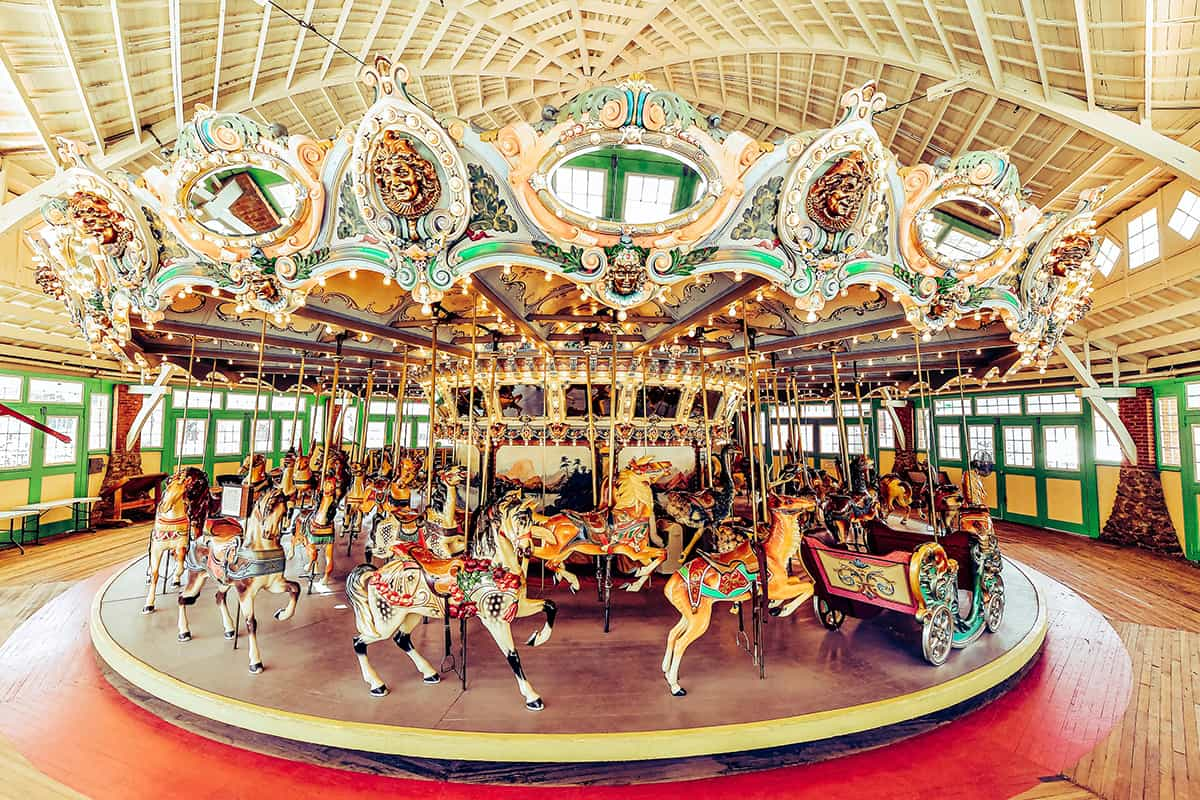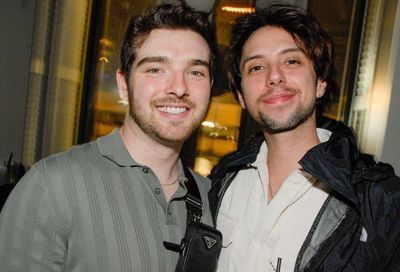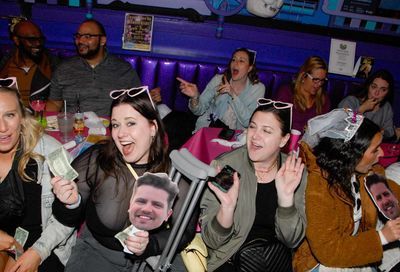Racing Against the Rules
After almost two decades, D.C.'s infamous High Heel Race remains an orphan institution
The District of Columbia thrives on laws, rules and regulations. If you don’t think so, try eating french fries on the Metro.
The regulations regarding special events require a permit for any event that involves a street closing, fireworks, a block party, or the like. The permit is free, but a license may be needed. A license means liability insurance is involved, and that costs money. There may also be a charge for city services. The first step, of course, is submitting the name of the event, date and time, map of the event site, a history of the event, estimated number of attendees and a contact person’s phone number to the Mayor’s Special Events Task Group. This task group reports to the D.C. Emergency Management Agency. And so on and so forth.
The annual High Heel Race is not playing by the rules.
But a “community” is not a contact person. Who will apply for the permit and license? No one owns the High Heel Race, a D.C. institution begun years ago as Parson explains: a spontaneous competition of drag queens running the two blocks from JR.’s Bar & Grill at 17th and Church streets up to Annie’s Paramount Steakhouse, where they would down a shot, and then race back. According to a timeline on Rainbow History Project’s website, the High Heel Race was first run in 1986. That year’s winner, Clinton Winter, received a bottle of champagne for his efforts.”It’s an anomaly as events like this go,” explains Sgt. Brett Parson of the Washington, D.C., Metropolitan Police Department’s Gay & Lesbian Liaison Unit. “Look how it started — it was spontaneous. This wasn’t some organized event. It was a bunch of drunk drag queens who had a race down 17th Street. It’s truly a community event.”
Since that first impromptu drag race, some changes have been made. Dave Perruzza, general manager of JR.’s says his venue worked with the police to change the event to the Tuesday before Halloween, as a way of thinning the growing crowds. That change stuck and has been in place for several years. Nevertheless, the races keep drawing more people. This year, the city asked for organizers to pay a $9,000 fee and collect signatures from residents along the affected stretch of 17th Street. The city wants 90 percent of them to agree to the event. Notably, a fee was also requested in 2003, but waived.
This year’s request prompted a press release from the office of David Catania (I-At Large), one of the City Council’s two gay members.
In a phone interview Tuesday, Perruzza said the fees had already been dropped. But he made it clear that the fees are not JR.’s responsibility, insisting that any relation his venue has to the race is strictly unofficial.”Councilmember David Catania encouraged Mayor Anthony Williams and his administration to put aside monetary and procedural requirements placed on the annual 17th Street High Heel Race,” the Oct. 15 release reads. “If such action is not taken, the annual event that draws thousands of visitors may take place without police security and street closures.”
“We’re trying to work with the mayor’s office to have them take over the event,” Perruzza says. “The High Heel Race makes absolutely no money. We buy a tent, we pay to clean up the street, and we buy the volunteer T-shirts. We end up in the hole because we pay for all the stuff.”
Although the fees have been waived, as of Metro Weekly deadline, the request for the signatures was still standing. Perruzza says that JR.’s has gotten signatures from residents on Church Street to make the JR.’s tent for the evening in compliance. He says anything beyond that is unlikely.
Agreeing that it would be impossible to get the requested signatures before the Oct. 26 event, Ross Webber, a member of Catania’s staff suggested another possibility.
“There is an option that instead of a street closure, the event would be given a parade permit from the Special Operations Division,” he says. “If SOD approved a parade permit, they wouldn’t require the 90 percent signatures. That said, I don’t know how fast that can happen.”
Regardless of how the paperwork proceeds, everyone agrees that come the evening of the last Tuesday before Halloween, hundreds of costumed racers and spectators will crowd 17th Street, the street will be closed, and police will be present. And that they’ll be back next year as well.
Whether some person, group or government will claim responsibility for the event by the time it rolls around next year is the one variable that remains entirely random.
Support Metro Weekly’s Journalism
These are challenging times for news organizations. And yet it’s crucial we stay active and provide vital resources and information to both our local readers and the world. So won’t you please take a moment and consider supporting Metro Weekly with a membership? For as little as $5 a month, you can help ensure Metro Weekly magazine and MetroWeekly.com remain free, viable resources as we provide the best, most diverse, culturally-resonant LGBTQ coverage in both the D.C. region and around the world. Memberships come with exclusive perks and discounts, your own personal digital delivery of each week’s magazine (and an archive), access to our Member's Lounge when it launches this fall, and exclusive members-only items like Metro Weekly Membership Mugs and Tote Bags! Check out all our membership levels here and please join us today!























